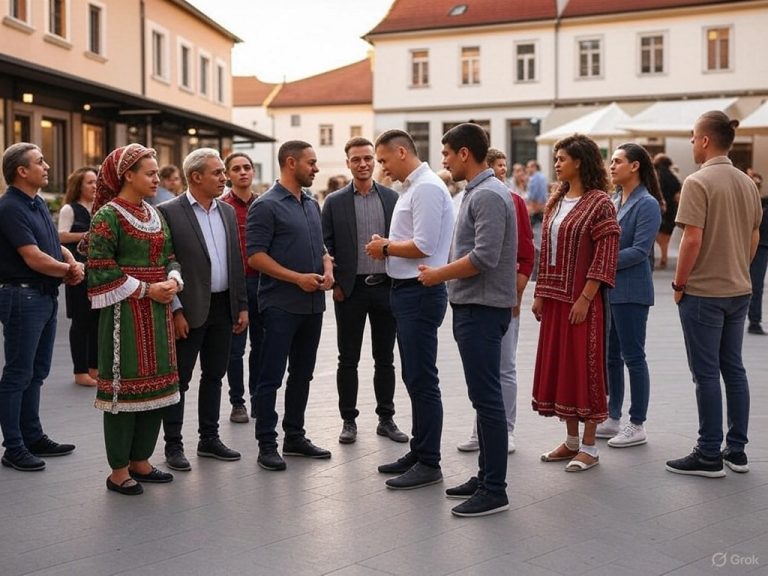Pop Culture as a Mirror of Society: What Today’s Trends Reveal About Us

An analysis of how popular films, series, music, and memes reflect social change and collective moods.
Pop culture has long served as both a reflection and a driver of societal values, anxieties, and aspirations. Today, in an era where digital content is consumed at unprecedented rates, popular media—from blockbuster films and viral memes to chart-topping songs and binge-worthy series—offers a powerful lens through which to examine the collective psyche of society. What we watch, listen to, and share says as much about us as any historical document or political speech. In fact, pop culture may be the most immediate and emotionally resonant record of our time.
Streaming Stories: TV and Film as Social Commentary
Television and film have always mirrored societal undercurrents, but today’s streaming culture accelerates and amplifies that reflection. Series such as The Last of Us and Black Mirror tap into collective anxieties around pandemics, technology, and dystopian futures. These shows do more than entertain; they articulate fears of isolation, government overreach, and environmental collapse. The popularity of such themes signals a public grappling with uncertainty and the consequences of rapid technological advancement.
Meanwhile, shows like Euphoria and Sex Education delve deeply into issues of identity, mental health, and sexuality, especially among younger generations. The frankness and vulnerability in these portrayals reflect a broader cultural shift toward openness and destigmatization. Audiences no longer seek only escapism—they crave authenticity and relatability.
Films, too, echo the times. The resurgence of socially conscious cinema, such as Everything Everywhere All at Once and Barbie, showcases a hunger for narratives that explore existential identity, gender roles, and generational trauma. These films, while visually fantastical, are rooted in very real, very current emotional experiences.
Music as Moodboard: Soundtracking a Generation’s Emotions
Music continues to be one of the most direct emotional outlets for cultural expression. The rise of genre-blending artists like Billie Eilish, Bad Bunny, and Olivia Rodrigo reflects the fluidity of identity and a rejection of traditional labels—musical or otherwise. The raw honesty in lyrics about mental health, heartbreak, and self-doubt resonates with audiences accustomed to curating perfect lives online while privately struggling with real issues.
Pop-punk and emo influences have made a notable return, driven by Gen Z’s embrace of vulnerability and nostalgia. This revival isn’t just about aesthetic—it’s a coping mechanism, a way for a new generation to express disillusionment in a post-pandemic, climate-anxious, digitally saturated world.
At the same time, global music trends—especially the international rise of K-pop, Afrobeats, and Latin music—highlight a more interconnected, multicultural world. These genres’ popularity reveals a growing embrace of diversity and a shift away from Western-centric cultural dominance.
Memes and Microtrends: The Internet’s Instant Feedback Loop
Memes, once dismissed as internet ephemera, have become some of the most potent cultural barometers. Their humor, absurdity, and speed of evolution capture not just what people are thinking, but how they’re thinking—often with irony, detachment, and layered self-awareness.
The rise of “core” aesthetics—like cottagecore, goblincore, or even “girlboss” satire—shows how people use humor and aesthetics to navigate societal pressures. These microcultures are often reactions to larger systems: capitalism, burnout, climate anxiety, or gender expectations. When people joke about “doomscrolling” or make memes about therapy, they’re signaling a shared experience of stress and a desire to process it communally, albeit through humor.
Memes also democratize cultural critique. Anyone with a smartphone can participate in shaping the narrative, making pop culture more participatory than ever before. This has led to more rapid cultural shifts and a blurring of the lines between creator and consumer.
What These Trends Say About Us
Collectively, today’s pop culture trends reveal a society in flux—more connected, more self-aware, and more openly emotional than ever. We are grappling with rapid change—technological, environmental, and social—and pop culture provides a space to explore, satirize, and make sense of it all.
The increasing appetite for authenticity and representation in media suggests a move away from idealized norms and toward a more inclusive, multifaceted understanding of the human experience. At the same time, the proliferation of meme culture and internet humor reflects a need for collective catharsis in the face of global uncertainty.
In essence, pop culture today is not a distraction from reality—it is reality, filtered through the lenses of creativity, emotion, and technology. As our world continues to evolve, it will remain both a mirror and a map: reflecting who we are, and guiding who we might become.


